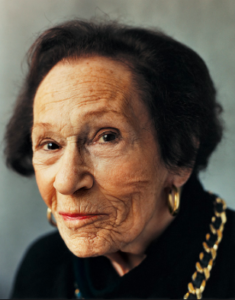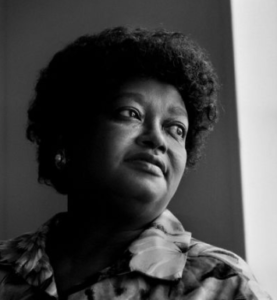

What is happening now is already one of the great events that will shape History. I know some of you took to the streets or pulled the covers over your head: both perfectly legitimate initial responses. Now, let’s think systematically about a way forward.
History is made by people’s choices. It’s not some mystical force that advances or recedes. This means that every one of us has the power to choose, too: we either react or respond to it, or we transform it.
First, remember you are not alone. As History and Human Rights professor Paul Gordon Lauren noted, thoughtful people for centuries have chosen freedom, dignity and justice. They envisioned a world without prejudice or persecution, though they dealt with leaders who claimed immunity from being held accountable for any abuses. He says, “this explains why John Locke was imprisoned, why Thomas Paine was burned in effigy, why Martin Luther King Jr. was assassinated, why Nelson Mandela was imprisoned, why the Dalai Lama is exiled, or why Aung San Suu Kyi was being held in house arrest.”
Powerful women in our distant and not-so-distant past also chose to pioneer: Lucretia Mott and Elizabeth Cady Stanton; Claudette Colvin and Rosa Parks; people lined up at Susan B. Anthony’s grave on Tuesday to say thank you. We may not (yet) have a woman for president, but having a female major party candidate advanced women’s rights arguably as much as her opponent may have challenged them (and please remember, 50% of us wanted a woman for president, here and now).
In recent history too, we have encountered ideology to which we were opposed, and we have organized. I have been part of several social movements in my lifetime – anti-peace in my youth, anti-war in my early twenties, Occupy in my late twenties –and, although my religious upbringing would tell me it was a sin, I went and literally tattooed “peace” on myself—inside my left wrist—as a promise to do everything I could to learn about, manifest, and create change. Because of that promise, I spent hundreds of nights in bed thinking about what will happen, and hundreds of days in discussion and in protest of the challenges before us, and then, despite efforts to create peaceful, democratic societies, watched the left and right debate who is correct this time and ignore the inner dynamics of social conflict. It made me feel helpless, like I know so many of us feel in this moment, but it also reminded me of the reasons that the work is worthwhile, the desire to work in solidarity with social change agents and peacebuilders to get the support they need, and to join them.
Make no mistake – what our forefathers and mothers knew and what they consistently chose is this – that the cure for helplessness is movement forward. It is not one system that you are working with or against – there are many small systems to impact and advance. I understand if you’re heavily discouraged by what has just happened: but might this be the trigger for a transformational change that we all need? To our activists, to my colleagues who work for change – you are ready, you have been ready, let’s do this. This is for the 50 million Americans with a desire to move forward and a discouraged heart. People of color, women, LGBTQI and concerned citizens: remember that you are part of a centuries-long movement for peace, dignity, human rights and social justice. Any battles we lose, know that we will win the war. There’s a way out.
Here’s how to begin:
1) Actively listen to, and empathize with, “others.”
We can’t examine the fruits of racism and misogyny without understanding the root causes. I’m not trying to sugarcoat it – this is not to dismiss the racist and misogynistic underlying force: that is real, that is intolerable, and that should be actively resisted. But mass change (like ending Apartheid) and individual change (like Pope John Paul sitting down to talk with the man who tried to assassinate him) all start from this place of empathy for those we feel are “other” from us, those who champion values we deem unthinkable, those to whom we think we can never relate. Actively, empathetically listening to someone who you believe to be the “other” can be, and often is, profoundly transformational for both people. Toward empathy, then, there is a good deal of data supporting why Trump may have been, in some folks’ minds, appealing “change” to the current status quo (as we know, some women, some people of color, and some of our own friends and family members –indeed, half our country saw something in this man). But aside from having a conversation with a Trump supporter (which I also highly recommend) to more deeply understand why or how half of our country would choose Trump despite (or perhaps because) of this, some examination of recent data may help. There have been 200 school shootings since 2013. Rural educational statistics are as horrifying as urban educational statistics, and we don’t have the flocks of young teachers moving to intervene in small town Tennessee or Iowa. There were more than 41,000 suicides in the US in 2013 – 113 a day, or one every 13 minutes. The heroin epidemic is now so rampant in our rural and suburban communities it is leaving families with shame, and leaving more children than ever in foster care. Add to this the family circles and friends and you get millions of people feeling hopeless and deeply in need of change – apparently, approximately 50 million, to be exact. We need to hear these stories and we need to love the people who are telling them. This is part of the path forward.
- Teach and Re-Learn the tools of Critical Thinking.
Once we better understand why 50 million people may have chosen what they earnestly believe will bring about a better country, it is time to engage our critical thinking. Our circles and our media consumption reinforce our worldview. It’s important to challenge those assumptions, and to share the tools with which to do that with our youth. Critical thinking means basing your beliefs on actual evidence as opposed to wishful thinking. It means thinking through the implications of a belief. In my own experience, if I had not started thinking critically, I would surely be more extremist. Once we develop our critical thinking skills and begin to examine our beliefs systematically, it becomes a means by which we can mentally counter everything that is trying to deceive us – ideology, politics, marketing – we remove ourselves from false beliefs. We choose truth.
- Create Transformational Spaces in our lives.
We need a deep level of self-reflection on white privilege, heterosexism, race, class, gender equality. Societal reflection starts with critical, individual self-reflection. How can we create love in our lives? How can we counter societal forces before us? If we don’t clarify our own values and our own processes of meaning making, we can’t conquer a society. We have to own that our worldview comes from our own constructs about the lessons learned from our past experiences. We can infuse purpose and meaning on a daily basis with each choice we make. Do the internal work: there is no other way. We must repair our inner lives. The late philosopher, Maxine Greene, said that it is easy for people to be lost in the crowd, to lose the opportunity to think independently. She urged us to remain “wide awake.” Greene says that being aware, conscious, and reflective of one’s own and others’ ways of thinking and being, is, in and of itself, a powerful way forward: that “we are who we are, not yet” as we are “always becoming.” We need to be proactive, awake, centered. From here, we can transform.
- Act. Remember that our Diversity is our Strength.
The last step is to put our listening, thinking, and reflecting into action. In my leadership program, we discuss the difference between commitment in intention and commitment in action. One of the major missing parts in moments such as these is not taking the energy of the moment and using it to make achievable goals for the change we want to see. Create a space in your life, in your schedule, for the next year, with your friends, to dedicate time to an issue of importance to you. Democracy is not only voting: it is active civic engagement. We must educate ourselves on the real issues and where the need intersects with our particular strengths. There is an opportunity to create new patterns for our planet and humanity and to achieve systemic-level changes as the foundation of new realities. That can start with you.
Change sometimes results from quiet reflection, sometimes from a movement so profound we can’t help but act. Human rights are for all of us. If we believe that, it forces us to look at our world, at our lives, at human behavior, indeed, at our choices. If we can put forth into the world the key steps above: listening with empathy to each other, thinking critically, reflecting deeply, and committing to action on issues until we achieve systematic results – we can be a real democracy. Remember: the election is only part of that. Just as Hillary wouldn’t have absolved us from local, regional work neither can Donald take it from us. Let us commit in action to our values, beyond democrat or republican. What resonates with you? Act on that. A new civic engagement – we wake up, we nourish our bodies, we meditate, we go to the movies: we routinely engage with a cause of importance to us. When it’s *that* regular, our world will change.